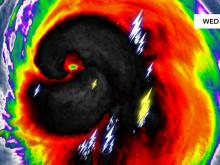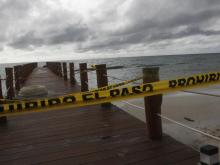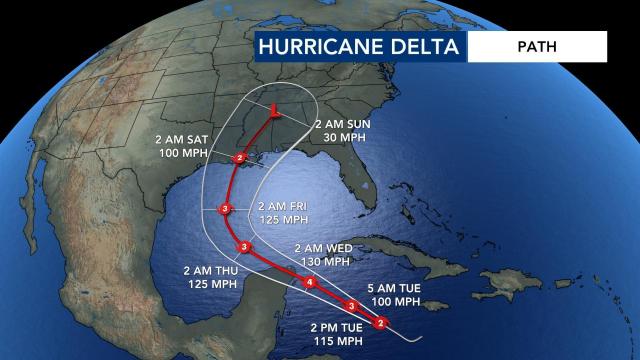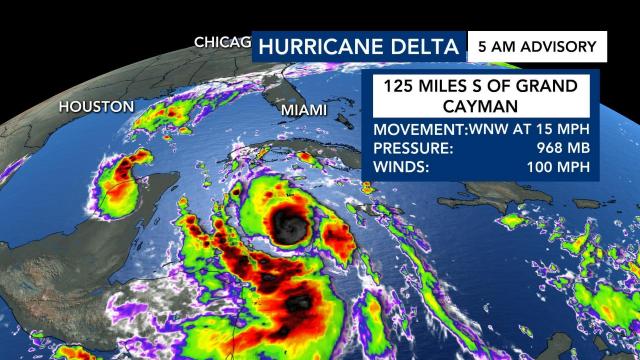- Seven months after Hurricane Helene, Chimney Rock rebuilds with resilience
- Wildfire in New Jersey Pine Barrens expected to grow before it’s contained, officials say
- Storm damage forces recovery efforts in Lancaster, Chester counties
- Evacuation orders lifted as fast-moving New Jersey wildfire burns
- Heartbreak for NC resident as wildfire reduces lifetime home to ashes
In less than 24 hours, Hurricane Delta strengthens from Cat. 1 to Cat. 4 storm

Raleigh, N.C. — Hurricane Delta rapidly intensified from a Category 1 to a Category 4 hurricane on Tuesday and could have devastating impacts on the Gulf Coast before it brings rain to North Carolina later this week.
Warm water temperatures helped the storm strengthen very quickly, according to WRAL meteorologist Elizabeth Gardner.
The center of the storm is expected to pass the Cayman Islands on Tuesday, strengthening into a Cat. 4 hurricane before it makes landfall near Cancun on Wednesday. Dangerous hurricane conditions are expected for the Yucatan Peninsula, where at least 4 to 6 inches of rain could fall.
Delta is expected to weaken when it makes landfall near Louisiana on Friday night.
According to the National Hurricane Center, while it’s too early to know the exact impacts, there is a risk of dangerous storm surge, wind, and rainfall hazards along the coast from Louisiana to the western Florida Panhandle.
Gardner said remnants from the storm would then move to the northeast, possibly bringing rain to North Carolina on Saturday and Sunday.
Currently, it looks like the heaviest rain will fall in the western portion of the state, while the Triangle could get between 0.5 to 2 inches of rain.
For now, the only local impact expected from Delta is rain.
Delta will be the record 10th storm to make landfall in the U.S. this season. It is the ninth hurricane and the 25th named storm of the season.


